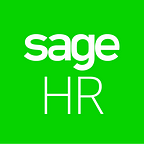Do you remember the times when HR was called “personnel” and we were just administrators offering limited support services like hiring employees and processing payroll or benefit claims?
Well, not anymore! With hard work and commitment we have proven that our value reaches far beyond fulfilling only personnel functions.
Nowadays we are the ones to mold the company’s culture. We are the ones to lead the organization through all the changes.
HR now has a regular seat in the boardroom, and its strategic importance is indisputable.
Although it may seem as a pretty secure and comfortable positioning, doing things the same way as in the past will most likely not be enough to bring success in the future.
So get ready to make some changes because it’s time to catch up. Hang in there!
While most of the talk is about applying BigData to marketing and consumer businesses, there is an even bigger opportunity to apply BigData to Human Resources
We believe that with the help of technologies, a successful future HR leader is more than just a recruitment department manager.
Using new methods and tools, HR professionals should be like data scientists that can analyze certain employee actions and understand the reasoning behind it.
Companies that successfully leverage analytics and big data will be positioned to outperform their peers in executing their talent strategies
The proper term for this process is Talent Analytics which uses data to make management decisions from drawing in new talents to placement, from compensation to retention, and from promotion to succession planning.
Now let’s look into how Talent Analytics can benefit HR management:
1. It is a great descriptive tool
Global research analyst Josh Bersin pointed out some striking findings after a statistical analysis of sales productivity and turnover was performed.
The data revealed that in terms of performance and retention old indicators like GPA and education factored less than experience selling high-value items.
Data implementation into the recruiting process resulted in the company’s growth by $4M in the very next fiscal period.
2. It is also an impressive predictive tool
The analysis of high performer skills and characteristics allow the organizations to create a template for emerging candidates.
The CEO of Talent Analytics Greta Roberts holds a view that predictive talent analytics is more useful — instead of reflecting on the outcome, it asks the following questions to change it.
Some of the questions — how can we reduce the turnover? What is our attrition rate going to be this year? Who might leave our company?
3. It can be used by everyone
Merit may prevail over a fancy university diploma, skills may supersede proximity, and intangible assets like social skills, flexibility and attitude… well, and they can now be measured.
Some good examples worth mentioning that have devoted to people analytics are Google’s HR division and LinkedIn.
4. It is evolving rapidly
Due to technological development and much more powerful tools on the market, talent analytics has been evolving rapidly.
Advanced software algorithms make it possible to identify talents and match them with company’s needs.
Finding team players based on core traits and personality matching makes it an effective tool for preliminary screenings.
5. It is mobile!
Make sure your talent acquisition strategies are mobile too.
With new mobile apps talent search has become easier than ever. You can do it anytime and anywhere.
Moreover, red flag identifiers are also included providing an efficient way for handling the increasingly global and social nature of hires.
6. It’s growing
In 2013 the market for corporate talent management software grew by 17% with the worth of $5 billion.
Gartner prognosticates the market for Big Data and analytics to generate $3.7 Trillion in products and services, as well as 4.4 million new jobs by 2015.
It is a fact that technologies have opened us a lot of new doors and opportunities for growth.
78% of large companies rated HR and talent analytics as “urgent” or “important”
Yet as we look into the future, there are several opportunities for the improvement of our skills and capabilities in order to provide innovative HR solutions.
Firstly, we all live in an era where most of us are digitally connected.
Therefore, as progressive HR professionals, we must also be digitally educated and improve our work so that we could stay ahead of the trends.
Secondly, another area of interest that requires digital revolution is talent acquisition; HR needs to learn and act like digital marketers.
Digital marketers adapt promotional offers and get them on selected digital platforms that reach targeted groups to drive sales; same idea could be used in HR, creating customized recruitment messages and delivering them digitally to reach the potential candidates who tend to be passive job seekers.
Thirdly, HR also needs to improve its analytical capability so that the decisions and HR plans are educated, informed and fact-based.
And last but not least, ethnographic research is definitely a step worth taking because it enables to make better insights-driven decisions.
If you have not heard about it before, Ethnographic research, which studies customers experience journey, is becoming very popular in product or service design.
Although this type of research has not been widely studied in HR yet, it has a great potential being applied to HR, for example in the employment experience of job applicants or the onboarding experience of new hires.
Since we live in a highly developed and modernized era, it is very important to evolve with the latest trends.
HR is evolving into a data-driven function
Nowadays HR professionals are much more than just recruiting managers.
When a HR specialist becomes a data scientist, using new methods and tools enables to study certain employee behaviors and actions, as well as evaluate the overall situation in the organization.
Talent analytics can help the business make informed talent decisions, predict employee performance, and conduct advanced workforce planning.
Sintija.
Originally published at cake.hr
